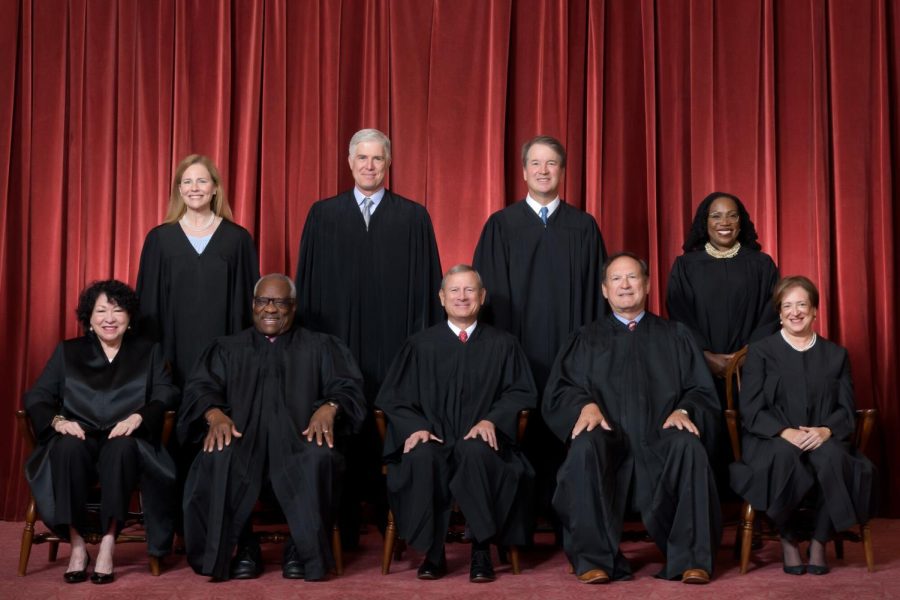Biden et. al. v. Nebraska et. al.: The Supreme Court debates student debt relief
April 3, 2023
The Supreme Court, largely shrouded in mystery behind the large marble pillars of the Supreme Court building and the lack of cameras, is hearing arguments on case 22-506: Joseph R. Biden, President of the United States, et. al. vs. the state of Nebraska, et. al., questioning the legality of student loan debt relief.
The main points of the case presented are (one) whether or not Nebraska and the other states have judicial standing (Article III) to challenge the president’s student loan debt program and (two) does the program exceed the statutory authority of the Secretary of Education?
Arguing on behalf of the Biden administration is the 48th Solicitor General of the Department of Justice, Elizabeth G. Prelogar. On behalf of Nebraska and other states is James A. Campbell, Solicitor General, Lincoln, Nebraska. Apart from the fact that he is the Solicitor General of the state of Nebraska, no other details about his life could be found.
Elizabeth Prelogar graduated summa cum laude from Emory University, magna cum laude from Harvard Law, an Articles Editor at the Harvard Law Review and has also served as a Fulbright Fellow. She was nominated by President Joe Biden on Aug 11, 2021, senate confirmed on Oct 28, and was sworn in on the very next day.
The argument on the behalf of Biden et. al. is that the HEROES Act of 2005 allows the federal government, and by extension the Department of Education, to change student-loan programs in a time of a national emergency, such as the COVID-19 pandemic. The states, led by Nebraska, respond that the proposal for student-debt reform exceeds the powers of the Secretary of Education, Miguel Cardona. Nebraska et. al. initially presented this issue in the district court for the eastern district of Missouri, but was struck down by Judge Henry Autry, citing lack of Article III standing.
If the Supreme Court rules along party lines, it could be assumed that the case will fail, leaving many without the promised student loan debt relief that was promised by then presidential candidate Biden. However, if the court rules in favor, the student loan debt relief program is a starting point for everyday Americans and their recovery from the pandemic. The Supreme Court began hearing arguments back in Feb, questioning “fairness” of the proposal, among other sub-topics pertaining to the case, and are expected to release a decision in the summertime.



